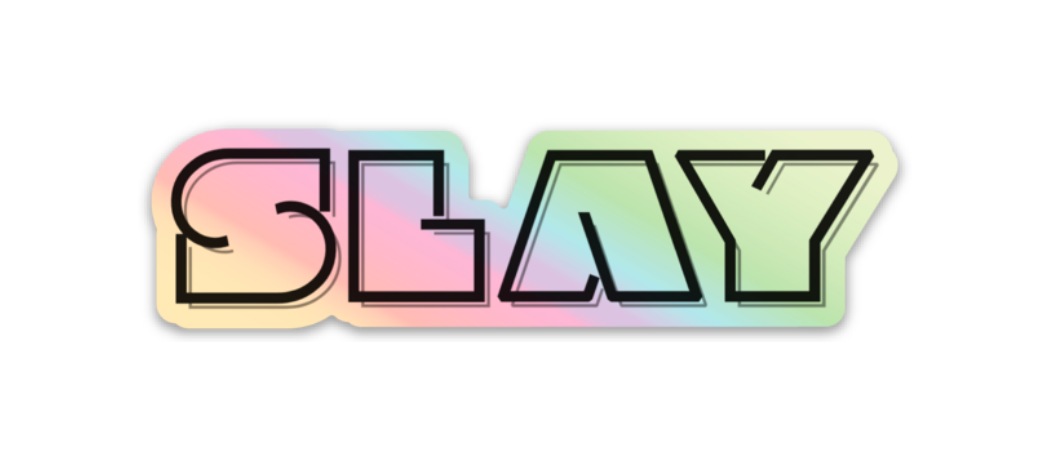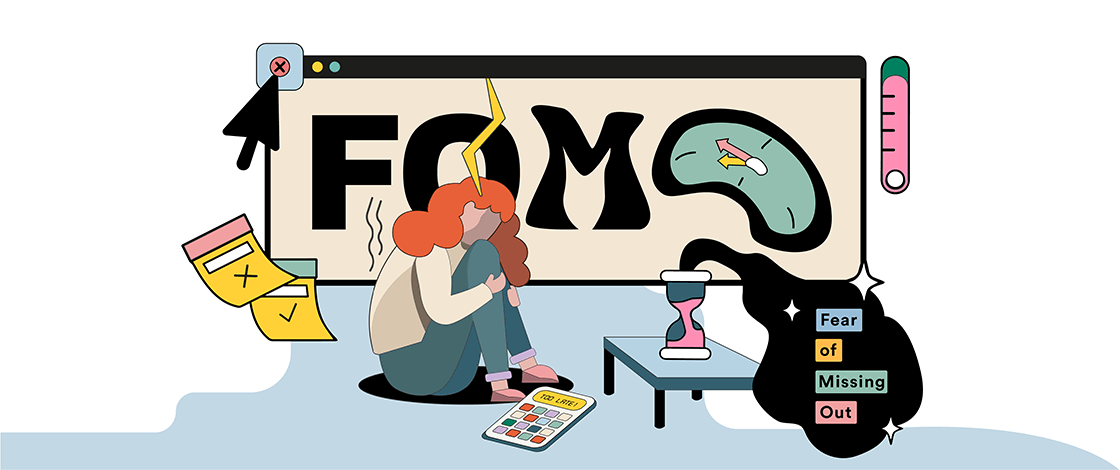So, you're finally here – in the land of opportunity, home to Hollywood, and the place where “awesome” is just a regular word. Welcome to the United States! As an international student, adjusting to life in America is already a massive leap.
But wait – you’ve probably noticed something. People around you aren’t just speaking English; they’re using a whole new language – slang. From the classroom to the dorm, understanding American slang is like unlocking a whole new level of communication. But don’t sweat it, this guide’s got your back! We're diving into the ultimate list of American slang every international student needs to know to sound like a local and avoid those "wait, what?" moments.
The Importance of Slang
Before we get into slang, let’s get one thing straight – knowing American slang isn’t just about sounding cool (though that’s a bonus). It’s actually pretty crucial for fitting in. According to a study by EF Education First, language immersion (which includes understanding local slang) significantly improves students' ability to adapt to new environments and cultures. So, learning slang is not just a fun extra – it’s a powerful tool for navigating daily life, making friends, and getting the most out of your experience in the U.S.

Why Slang Can Be a Challenge
If you're an international student, you might already be fluent in English. You’ve aced your TOEFL, your grammar is spotless, and you can read The Great Gatsby without breaking a sweat. But then, someone says, “Hey, I’m totally down to hang later – BRB!” and you're left wondering what on earth just happened.
Slang can be tricky because it often doesn’t follow the rules you’ve learned. It's regional, cultural, and sometimes just downright weird. But don’t worry – we’re breaking it down into categories so you can easily navigate your new life, from taking your classes to making friends, and yes, even understanding what that guy meant when he said, "BRB."
Top General American Slang
Let’s start with the basics. These are words and phrases you’ll hear almost everywhere, from the grocery store to your Uber ride. They’re not specific to any one situation, but they’re used so often that not knowing them could leave you feeling lost.
1. Ghost
- Meaning: To suddenly cut off all communication with someone without explanation.
- Example: “I can't believe he just ghosted me after the party!”
- Explanation: Ghosting can happen in social and academic settings alike. If someone “ghosts” you, it could mean they’ve decided to disappear from your life without a word. Not cool.

2. Flex
- Meaning: To show off, especially in a bragging way.
- Example: “He’s always flexing his new sneakers in class.”
- Explanation: Flexing is part of American culture, especially on social media. You’ll see people flexing their achievements, clothes, and even food.
3. Salty
- Meaning: Bitter or upset, often over something trivial.
- Example: “Don’t be so salty just because you lost the game.”
- Explanation: Campus life is competitive, and whether it’s sports, academics, or relationships, it’s easy to get a bit salty now and then.
4. Low-Key
- Meaning: Subtle or not openly stated.
- Example: “I low-key want to skip class today.”
- Explanation: This is useful when you want to express something in a more toned-down way without making it a big deal.
5. High-Key
- Meaning: The opposite of low-key; very open and obvious.
- Example: “I’m high-key excited for the concert this weekend!”
- Explanation: While “low-key” is about keeping things on the down-low, “high-key” is all about being straightforward and loud about your feelings.
6. Tea
- Meaning: Gossip or hot news.
- Example: “Did you hear the tea about Sarah and her new boyfriend?”
- Explanation: Gossip culture is alive and well on American campuses. Be ready to hear the “tea” at every social gathering.
![100+] Among Us Sus Wallpapers | Wallpapers.com](https://wallpapers.com/images/hd/among-us-sus-bbk827u93enbpyf9.jpg)
7. Sus
- Meaning: Suspicious or shady.
- Example: “That deal sounds kinda sus, don’t you think?”
- Explanation: If someone’s acting “sus,” they might not have the best intentions. Watch out for red flags, both in friendships and academic collaborations.
8. Adulting
- Meaning: Managing adult responsibilities like paying bills, doing laundry, or buying groceries.
- Example: “I’m so tired of adulting. Why can’t it be summer break already?”
- Explanation: As a student, you’ll be juggling your studies with all the responsibilities that come with living on your own. Welcome to adulting!
9. Thirsty
- Meaning: Desperate for attention or validation.
- Example: “He’s so thirsty for likes on Instagram.”
- Explanation: On social media, you’ll encounter people posting for attention or validation. Understanding this slang will help you navigate those waters with ease.
10. Extra
- Meaning: Over-the-top or dramatic.
- Example: “She’s so extra about her Halloween costume this year.”
- Explanation: Sometimes people can be “extra” when they make a big deal out of small things, and it’s good to know when to avoid adding fuel to the fire.
Lesser-Known American Slang
Beyond the commonly used slang, there are hidden gems in the American slang vocabulary that international students rarely come across until they're in the thick of campus life. Let's explore more.
11. Woke
- Meaning: Being socially aware, especially in terms of social justice.
- Example: “She’s really woke when it comes to environmental issues.”
- Explanation: If you’re involved in social or political conversations on campus, being “woke” means you’re aware and active in advocating for justice and equality.
12. Simp
- Meaning: A person who is overly attentive or submissive, often to someone they like.
- Example: “He’s simping hard for that girl in class.”
- Explanation: This term can be thrown around in relationships or even when someone’s trying too hard to impress others. Use it wisely—no one wants to be called a simp.

13. Cap / No Cap
- Meaning: “Cap” means a lie, and “no cap” means you’re being truthful.
- Example: “That story you told us was total cap.”
- Explanation: If someone says “no cap,” they’re being honest. If they say “cap,” they think something isn’t true. It’s a quick way to call out lies.
14. Bet
- Meaning: A way of saying “okay” or “sure” in agreement.
- Example: “You’re coming to the party tonight?” “Bet.”
- Explanation: “Bet” is one of those versatile slang words that can mean anything from agreeing to a plan to confirming a statement. It’s like saying “got it” but cooler.
15. Clap Back
- Meaning: A witty or sharp response to criticism.
- Example: “She clapped back at the haters with a killer comeback.”
- Explanation: Whether in debates or friendly banter, knowing how to clap back is a skill that can serve you well.
16. Stan
- Meaning: A combination of “stalker” and “fan,” used to describe someone who is obsessed with a celebrity or trend.
- Example: “I totally stan that new K-pop group.”
- Explanation: Stanning is huge in the U.S., especially in pop culture. If you’re really into something, you “stan” it.

17. Boujee
- Meaning: Someone or something that is fancy or pretentious.
- Example: “We’re going to that boujee restaurant downtown.”
- Explanation: You’ll find plenty of boujee spots in American cities, and understanding this slang can help you fit right in when describing something overly fancy.
18. Throw Shade
- Meaning: To give someone a dirty look or subtly insult them.
- Example: “She threw shade at me during the meeting.”
- Explanation: Throwing shade is a passive-aggressive way of showing disapproval. Spot it early, and you’ll know when someone’s not being genuine with you.
19. Finesse
- Meaning: To manipulate or manage something smoothly or cleverly.
- Example: “I finessed my way into getting a discount at the store.”
- Explanation: Knowing how to finesse situations can be a handy skill in both social and academic settings. It’s all about getting what you want without too much effort.
20. Lit
- Meaning: Something exciting or fun.
- Example: “That party last night was lit!”
- Explanation: “Lit” is all about having a good time, and you’ll hear it often at social gatherings and events. Just be sure to know your limits when things get too lit.

Slang for Academic Life in the U.S.
Your time in the U.S. will revolve heavily around your studies. The academic slang used in American colleges and universities can be tricky, but understanding it will help you navigate through classes, assignments, and exams.
21. Dead Week
- Meaning: The week before final exams when no major assignments are due, but everyone is cramming.
- Example: “I’m so stressed out during dead week, I barely have time to sleep.”
- Explanation: “Dead week” isn’t dead at all. It’s the most intense week of the semester, so brace yourself for long nights and coffee runs.
22. Bomb
- Meaning: To fail an exam or assignment.
- Example: “I totally bombed that chemistry test.”
- Explanation: Bombing isn’t fun, but it happens. If you bomb a test, just pick yourself up and move on to the next one.
23. Pull an All-Nighter
- Meaning: Staying up all night to study or finish work.
- Example: “I pulled an all-nighter to finish my essay, and now I’m exhausted.”
- Explanation: All-nighters are almost a rite of passage in college. They’re exhausting but sometimes necessary to get everything done.
24. Nailed It
- Meaning: To do something perfectly.
- Example: “I nailed that presentation!”
- Explanation: When you’ve done a great job, don’t be afraid to say you “nailed it.” It’s a confidence booster, and others will recognize your hard work.
25. Chill
- Meaning: To relax or take it easy.
- Example: “I’ve been working all week, so I just want to chill this weekend.”
- Explanation: Campus life can get hectic, so it’s essential to find time to relax. When someone invites you to “chill,” they usually mean kicking back and doing something low-key, like watching a movie or hanging out.

26. Hit the Books
- Meaning: To study hard, especially before an exam.
- Example: “I’ve got finals next week, so it’s time to hit the books.”
- Explanation: Academics are a big part of your life as an international student, and understanding the slang around studying will help you communicate your plans to friends and classmates.
27. Blow Off
- Meaning: To skip or ignore something, like class or an assignment.
- Example: “I’m just going to blow off that meeting; it’s not important.”
- Explanation: While blowing off something might seem tempting, be careful—too much of this can hurt your grades or reputation. It’s all about balance.
28. Cram
- Meaning: To study intensively over a short period, usually right before a test.
- Example: “I crammed all night for that exam.”
- Explanation: Cramming is common during finals week, but it’s not the most effective way to learn. If you find yourself cramming, try to plan better next time (easier said than done, right?).
29. Curve
- Meaning: When a professor adjusts exam scores based on overall class performance, usually to improve grades.
- Example: “I was worried about my score, but then the professor curved the exam.”
- Explanation: Curves can save your grade when an exam is particularly tough. Knowing that a class might be curved can give you a little breathing room when you’re stressing about scores.
30. Study Jam
- Meaning: A group study session, often held before big exams.
- Example: “We’re having a study jam at the library tonight. You should come!”
- Explanation: Group study sessions, or “study jams,” can be incredibly helpful when preparing for exams. They’re also great for meeting new people and sharing knowledge.

Slang for Social and Campus Life
College isn’t all about academics. A big part of your experience will be socializing and exploring everything campus life has to offer. Here’s some slang to help you fit in socially.
31. Go Off
- Meaning: To passionately express your opinion or to do something with enthusiasm.
- Example: “She really went off during her presentation—it was impressive.”
- Explanation: “Go off” can be used as encouragement or as a compliment when someone is doing something really well or with passion. It’s a way to hype someone up.
32. Plug
- Meaning: A person who can hook you up with something you need, like tickets or products.
- Example: “He’s my plug for concert tickets.”
- Explanation: Having a “plug” can be very handy, especially when you’re looking for hard-to-find items or deals on campus. Networking is key!
33. Catch These Hands
- Meaning: A warning that someone is ready to fight.
- Example: “If you keep messing with me, you’re about to catch these hands.”
- Explanation: While hopefully you’ll never have to use this phrase, it’s useful to know. It signals that someone is upset and ready to physically confront you, so steer clear.

34. Whip
- Meaning: A car.
- Example: “I just got a new whip, want to go for a ride?”
- Explanation: “Whip” is often used to describe someone’s car, especially if it’s new or flashy. It’s a cool way to talk about vehicles without just calling it a car.
35. Squad
- Meaning: A close-knit group of friends.
- Example: “I’m going to the party with my squad tonight.”
- Explanation: Having a “squad” means you’ve found your people, your support system on campus. College life is easier when you’ve got a solid group of friends to rely on.
36. Swerve
- Meaning: To dodge or avoid someone or something.
- Example: “I had to swerve that awkward conversation at the party.”
- Explanation: Sometimes you’ll need to “swerve” uncomfortable situations, whether it’s avoiding drama or steering clear of awkward encounters.
37. Turnt
- Meaning: Extremely excited, energetic, or intoxicated at a party or event.
- Example: “The party was so turnt last night, everyone had a blast!”
- Explanation: “Turnt” is often used to describe high-energy events or parties, and you’ll hear it a lot when people are talking about their weekend plans.
38. Deadass
- Meaning: Seriously or genuinely.
- Example: “Deadass, I can’t believe you pulled that off.”
- Explanation: If someone says they’re “deadass,” they mean they’re serious. It’s a straightforward way to emphasize that you’re not joking around.

39. Slay
- Meaning: To do something exceptionally well, especially in terms of style or performance.
- Example: “You slayed that presentation!”
- Explanation: “Slay” is all about owning it—whether it’s your look, your work, or anything you’re proud of. It’s a term of empowerment and confidence.
40. Fam
- Meaning: Short for “family,” but used to describe close friends.
- Example: “You’re my fam, I’ve got your back no matter what.”
- Explanation: “Fam” is a term of endearment, often used to describe your closest friends or people you trust like family. It’s a way to show loyalty and support.
.jpg)
Campus Events and Party Slang
Attending campus events and parties is a big part of American college life. Here’s some slang you might hear while enjoying the social scene.
41. Rager
- Meaning: A huge, wild party.
- Example: “There’s a rager happening at the frat house tonight.”
- Explanation: “Ragers” are often the talk of campus, especially after big events like football games or holidays. Just be careful—these parties can get out of hand.
42. Pre-game
- Meaning: Drinking or getting ready before going out to a bigger event or party.
- Example: “We’re meeting at my dorm for a pre-game before heading to the concert.”
- Explanation: “Pre-gaming” is a common ritual before big events. It’s about building excitement and getting in the mood for the main event.
43. Squabble
- Meaning: A small argument or fight.
- Example: “They got into a squabble over who was paying for dinner.”
- Explanation: Squabbles are minor disagreements, often resolved quickly. It’s helpful to know when someone is just having a squabble rather than a serious conflict.
44. Crash
- Meaning: To fall asleep suddenly, often from exhaustion.
- Example: “After that party, I just crashed on my bed.”
- Explanation: Whether from a long day of studying or a late night out, you’ll hear people talking about “crashing” when they’re totally worn out and ready to sleep.

45. FOMO
- Meaning: Fear of Missing Out.
- Example: “I didn’t want to stay in because I had major FOMO about the party.”
- Explanation: FOMO is real, especially on college campuses where there’s always something happening. Understanding FOMO can help you balance your social life and academic responsibilities.
FAQs
1. What exactly is slang, and why do people use it?
Slang is informal language used by specific groups of people, often to express themselves more casually or creatively. It can make communication more fun and relatable, and it often evolves quickly to reflect current trends and cultural changes.
2. How can I quickly learn and understand new slang terms?
To pick up new slang, try listening to conversations, watching TV shows or movies, and interacting with people who use these terms. Context is key—pay attention to how slang is used in different situations to get a better grasp of its meaning.
3. Is it important to use slang correctly, or can I just use it however I like?
Using slang correctly is important because it helps you communicate more effectively and avoids misunderstandings. Misusing slang can sometimes come off as awkward or insincere, so it’s good to understand its meaning and appropriate usage.
4. Can using slang affects how people perceive me?
Yes, it can. Using slang appropriately can help you fit in and connect with others, while misusing it might make you seem out of touch or confused. Understanding when and where to use slang helps you come across as more authentic and engaged.
5. How often does slang change, and how can I keep up with it?
Slang changes frequently as new words and phrases emerge and old ones fall out of favor. To stay updated, follow trends on social media, watch popular media, and engage with diverse groups of people. Language evolves, so keeping an ear out for new terms is key.
6. Are there certain slang terms that are specific to particular regions in the U.S.?
Yes, slang can vary significantly by region. For example, terms used in New York might not be as common in California. Understanding regional variations can help you navigate different areas and connect with people from various parts of the country.
7. Can understanding slang help me in professional or academic settings?
While slang is more common in informal settings, understanding it can still be beneficial in professional or academic environments. It can help you relate to colleagues and peers, and it shows that you’re engaged with contemporary culture.
8. How can I ask for clarification if I don’t understand a slang term?
Don’t hesitate to ask for clarification! You can say something like, “I’m not familiar with that term. Can you explain it to me?” Most people appreciate the effort to learn and are happy to explain slang terms to newcomers.
